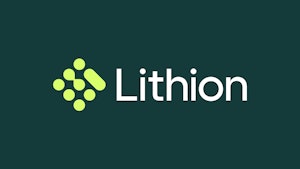RECYCLING LITHIUM-ION BATTERIES: A SOLUTION TO SUPPLY AND POLLUTION PROBLEMS?
Date
17.12.2024
Category
News

RECYCLING LITHIUM-ION BATTERIES: A SOLUTION TO SUPPLY AND POLLUTION PROBLEMS?
A Quebec company has found a way to recycle 95% of the battery components used in EVs
Considering the growing popularity of electric vehicles, it's important to understand that there's still a lot of controversy about their true environmental footprint, especially when considering the production of lithium-ion batteries.
Lithium is a material that needs to be removed from the earth and extracted from a concentration of salt water. It is present in several countries, but the world's producers are Chile and China. It is estimated that 75% of known reserves are located in the so-called lithium triangle: Chile, Bolivia and Argentina.
Unfortunately, the extraction process is rather complex and has a major impact on the immediate environment. Producing a ton of lithium requires the use of 500,000 gallons of water, and in these desert regions, this resource is sometimes scarce. Also, the cocktail of chemicals used for extraction can leach into groundwater and contaminate local water supplies.
What's more, the factories where batteries are assembled are sometimes located in countries where fossil fuels such as coal are used to generate electricity. In other words, where a lithium-ion battery is manufactured has an impact on its carbon footprint.
A Quebec company called Recyclage Lithion has been working for some time on a possible solution to supply and pollution problems. The firm has developed a process by which 95% of the components of old lithium-ion batteries can be recycled and reused with a new cell.
According to Benoit Couture, President of Recyclage Lithion, until recently, the emphasis in battery recycling was on reducing the amount of waste and everything to do with contamination.
Working in concert with Seneca's expert industrial engineers, the laboratory at Collège de Maisonneuve's Centre d'études des procédés chimiques du Québec and the Centre d'excellence en électrification des transports et stockage d'énergie, the company has achieved its initial objectives, including processing all types of lithium-ion batteries, producing no polluting liquids, requiring no new additives and recycling 95% of batteries.
At the end of the process, the purified materials are ready for new batteries and can be used by manufacturers of products using lithium, cobalt, graphite, nickel hydroxide and manganese oxide. Theoretically, it is now possible to obtain a lithium-ion battery made entirely from recycled materials. And the recycling process can, in principle, be repeated ad infinitum.
Next steps
Recyclage Lithion plans to build a pilot plant in Montreal at a cost of $12 million. It is scheduled to open in 2020. The technology is so promising that Sustainable Development Technology Canada is contributing $3.8 million to the project. The plant's objective will be to further refine and validate the process over the next two years, so that it can be presented to potential customers. The plant will be capable of processing up to 200 tonnes of used batteries on an annual basis.
Over the next few years, a commercial plant with the capacity to process 2,000 tonnes per year will eventually be built. Looking to the future, Benoit Couture predicts that eventually there will be plants capable of recycling up to 10,000 tonnes a year. Ideally, these plants would be located near car assembly plants. In his view, it's not too far-fetched to imagine a dozen or so of these in operation in North America and Europe. Demand should also be very strong in Asia, where the popularity of electric cars is also growing rapidly.
SOURCE: Auto123.com (https://www.auto123.com/fr/actualites/recyclage-lithium-ion-batterie-compagnie-quebec/65893/)